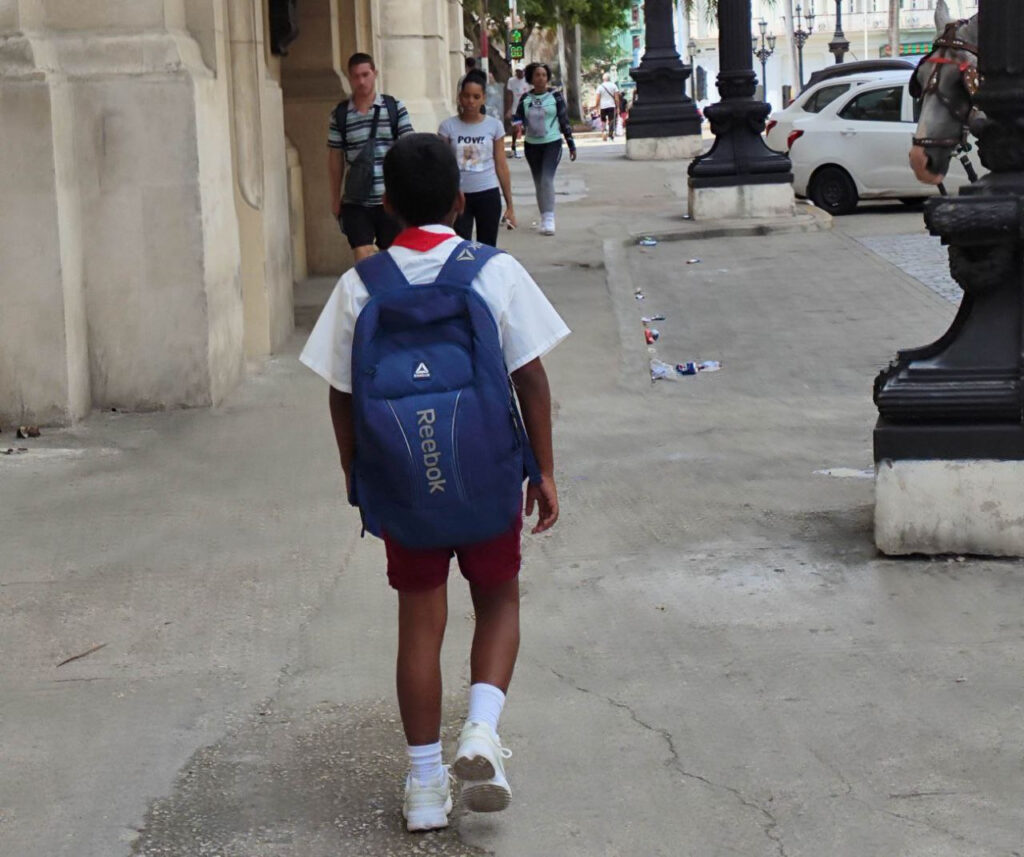
14ymedio, Juan Diego Rodríguez, Havana, 2 September 2024 — Not all Cuban children will start classes this Monday, when the 2024-2025 school year has been inaugurated with great fanfare. In Havana, for the next 15 days, some of them will have to work, either in cleaning, or in gardening, or even in other tasks, in a new kind of “school in the countryside,” one of Fidel Castro’s educational projects abandoned with the arrival to power of his brother Raúl, in 2008.
Tomorrow, for example, in a high school south of the capital, eighth-year students will have to go to a private cleaning-products company “to scrub bottles.” “Why does the school send some children to a private MSME and our children have to go clean for some rich people?” asked Daisy, who lives in Regla.
Daisy’s two children are in high school in the municipality of Regla, and today they began the course “incorporated” in the first destination of the “school in the countryside.”
“Why is the school sending some children to clean for a private ‘MSME’?”
The general director of Education of Havana, Karenia Marrero Arrechea, had already warned, although without giving details, last week on State TV’s Round Table program, when referring to the “change that we have to achieve in the student” to “link study and work.” “We are starting a school in a different field, where the student feels linked to tasks of impact,” she said, specifying that they would “begin” with three grades: eighth, eleventh and the first of Technical and Professional Education (ETP), in “organoponics” in the corresponding municipality and “on plaques and monuments.”
The phrase evoked by the official still causes chills in the generation of many parents who accompanied their children today on the first day of the school year, and who were sent in the eighties to the fields of tobacco, cabbage, banana, garlic, beans and coffee crops, in Pinar del Río or what are now the provinces of Artemisa and Mayabeque.
“I still have scars from that experience,” recalls María, a 45-year-old from Havana. “I had chronic conjunctivitis; they sent me to the infirmary, and the doctor left us locked up from the outside because he went to a party. They had to pass us food through the windows. I left there apparently recovered, but on the first day back in the field I realized that I couldn’t look at the areas illuminated by the sun.”
When she told the man in charge of the agricultural work what was happening to her, he thought she was lying to evade work. “I had to continue weeding in the furrows for two more weeks. When I returned home my eyes were blurry, and I could no longer look at any white or light-gray objects. I was diagnosed with advanced keratitis, an infection of the cornea. I almost lost vision in both eyes, and it still bothers me to look at any light-colored surface.”
The obj


